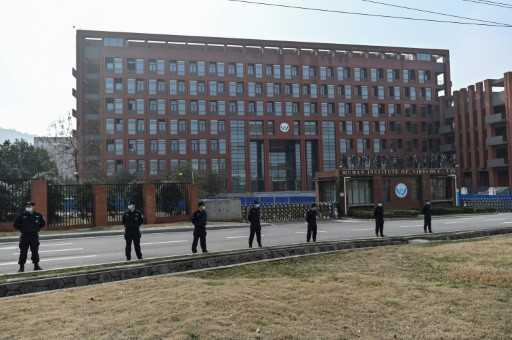COVID laboratory origin theory benefits traction in U.S.
26 May, 2021

Long dismissed just as a kooky conspiracy theory favored by the far best, the theory that COVID emerged from a lab leak in Wuhan has been gaining increasing momentum in the United States.
The government's position has shifted to agnosticism in recent weeks, with top pandemic advisor Anthony Fauci and Centers for Disease Control and Prevention director Rochelle Walensky both saying they are open to all possibilities.
"We need to reach the bottom of this and we need a completely transparent method from China, we will be in need of the WHO (World Health Organization) to assist in that matter," senior White Property Covid advisor Andy Slavitt stated Tuesday.
The demand for even more investigation is in stark contrast to the beginning of the pandemic, when scientists quickly came together around the theory that the virus crossed over from bats via an intermediary animal.
The problem is, this link still was not found, Scott Gottlieb, a former brain of the meals and Drug Administration, told CNBC on Monday -- and not for want of trying.
Prior coronaviruses that crossed to human beings, SARS and MERS, were quickly traced back again to civets and camels.
"The question for a lot of people will probably be when are way too many coincidences an excessive amount of?" added Gottlieb.
Citing a U.S. intelligence report, The Wall structure Street Journal reported Sunday a trio from the Wuhan Institute of Virology had been hospitalized with a seasonal disease in November 2019.
China disclosed the existence of an outbreak of pneumonia instances found in Wuhan to the Environment Health Organization (Who actually) on December 31, 2019.
Beijing dismissed the Journal report as "totally untrue."
On Tuesday, the United States and other countries needed a far more in-depth probe in to the pandemic's origins, after a global mission to China earlier this season proved inconclusive.
A long-delayed statement by a staff of authorities dispatched by the Who have to Wuhan and their Chinese counterparts drew no organization conclusions on the origins of the pandemic.
It said a normal origin was the most probable situation, and that a theory relating to the virus leaking from a good laboratory was "extremely unlikely."
After the report was released, however, WHO chief Tedros Adhanom Ghebreyesus himself insisted all theories remained up for grabs.
And calls from researchers for more transparency are actually growing.
"We should take hypotheses about both pure and laboratory spillovers seriously until we have sufficient data," a group of researchers from leading U.S. universities wrote in a letter published by the journal Science in mid-May.
The virus has claimed a lot more than 3.4 million lives worldwide and deciding how it approved to humans is known as crucial in preventing another pandemic.
In america, the hypothesis of a leak of the virus from the Chinese laboratory once was fueled generally by Donald Trump and his acolytes, and the problem became mired in the country's divided politics.
"Now every person is agreeing that I was right when I very in early stages called Wuhan while the foundation of COVID-19," the former president said Tuesday.
"To me it had been obvious right from the start but I just was badly criticized, as usual. Now they are all saying 'He was ideal.' Many thanks!"
However, many authorities remain cautious.
"Many of us believe that it is much more likely that this is a natural occurrence, as provides happened before," Fauci told reporters Tuesday. "But we have no idea 100 percent the answer to that."
The truth may never be known, said Gottlieb. Evidence supporting a laboratory leak won't area unless you will find a whistleblower or regime transformation in China.
Source: japantoday.com
